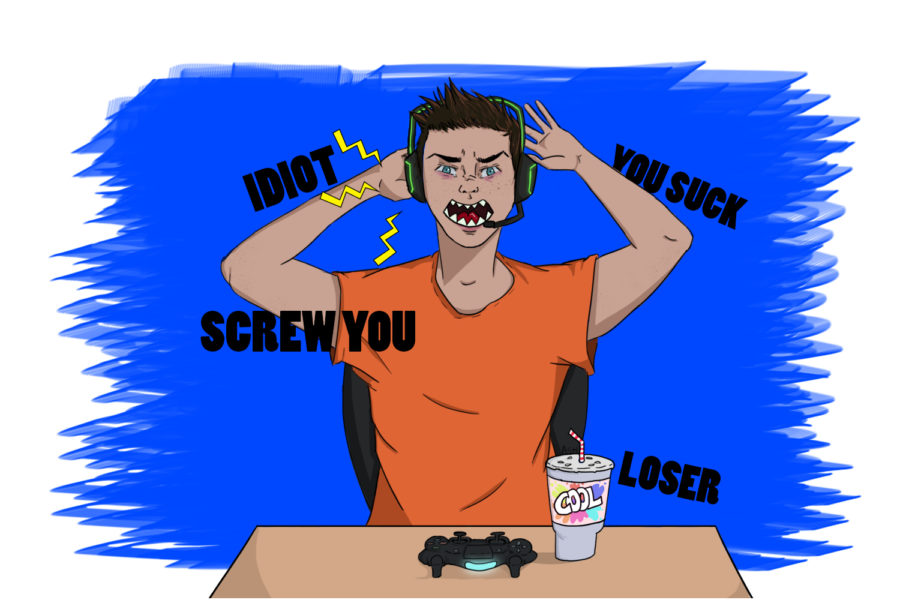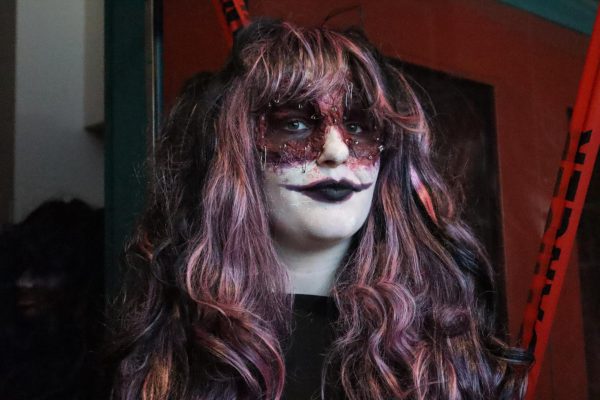Harassment In Gaming
Aggravation and provocation in e-sports often takes form of sexism
May 24, 2018
The online gaming world is a vast jungle of varying options, ranging from kid friendly cartoonish adventures to bloody shootouts in hellscape environments.
But at its core the essence of online gaming is the same — a way to connect with other gamers from the comfort of your own home. The advent of online gaming expanded the opportunities in which players interact with others all over the world, opening up new ways to play, but also new ways to be cruel.
Online gaming has opened up new multi-player formats like team play that were impossible before the Internet connected players together. But along with all of the good things that online gaming has brought there are also some less admirable traits have inevitably arisen. Harassment seems to be one of online gaming’s bigger genetic flaws.
All online games have their toxic players but e-sports seems to suffer this problem more than others. Games such as League of Legends, Counter-Strike: Global Offensive and Overwatch, are all infamous for their toxic players.
It’s obvious why. All of these games have some ability to communicate, whether it is through voice and/or text. Inevitably when communication channels are created there will be people who abuse it. Secondly, these are highly competitive games and anything competitive can devolve into trash talk. Serious gamers — even those who otherwise seem like nice people — can get ugly when they get frustrated or just want to mess with another player during a game.
The companies who create these games are increasingly aware of the toxic behavior that can occur. Riot Games (the creators of League of Legends), for example, have tried confronting this issue with an algorithm they devised.
This system acts nearly instantaneously against the accused toxic player after a match is played and will provide a fitting punishment for the crime. This includes a one-to-two week or even a permanent ban. The system then emails the player a reform card, and a transcript of text from the chat box that is used as evidence to dole out the punishment.
However, this system isn’t without its flaws. It’s fully automated and anyone can report other players for verbal abuse and hate speech by simply catching someone cussing in chat because the algorithm itself pays no attention to context. As a result trolls can abuse this system by baiting you into saying profanities.
Harassment in gaming is not limited to trolling, raging and exclamations of frustration. As with trash talk in sports, online gaming harassment often takes on a sexist tone.
There have been many accounts of some sort of discrimination against women in the gaming field. The old cliché of “playing like a girl” extends to video games, implying a negative stereotype to female gamers.
Some male gamers don’t think harassment is a problem, failing to recognize that their behavior degrades women. Usually this takes the form of slurs, insulting jokes all the way to genuine misogyny.
Some gaming communities have begun to speak out about this problem. Many female players of Overwatch, the popular first person shooter, have made YouTube videos in which they bring to light examples of the harassment they face.
There are playlists of videos dedicated to this topic and the stories they tell can be very extreme — even too profane to quote some of them. Some of these female players are so paranoid they don’t even attempt to use voice chat in fear of getting barraged by harassment.
Some of this harassment directed toward women can be traced to the fact that gaming is still a male dominated activity. However, the number of female players is growing. Women, as of 2017, account for 42 percent of all gamers in the United States while the other 59 percent is occupied by men.
One attempt to explain this disturbing trend in gaming was done by researchers Michael Kasumovic and Jeffrey Kuznekoff in a study titled Insights Into Sexism. They suggest that some of this sexism is related to historical mating behavior related to social status.
“We hypothesized that female-initiated disruption of a male hierarchy incites hostile behavior from poor performing males who stand to lose the most status,” write the researchers in the study.
This also means that higher performing males will be highly more likely to pass on positive comments to women to possibly attract them as mates. Since women make up the minority in gaming, though, they’re probably more likely to encounter the lower status men. This research, however, is not meant to justify the hostile actions that these certain men have against these women.
Freshman Brianna Cozzi, an avid Overwatch player said she had experienced online video game harassment first hand. “I have been sexually harassed before, it’s not so much an issue in the Overwatch community as it is in the gaming community in general. The Overwatch community isn’t as bad as a community like Call of Duty where people message you and are like oh wow you are a girl or you play games and you are a girl. The rabbit hole goes deeper as they target mostly younger female players. If you’re going through something like this, all I can say is utilize whatever tools the creators gave you like muting or even blocking the player.”







